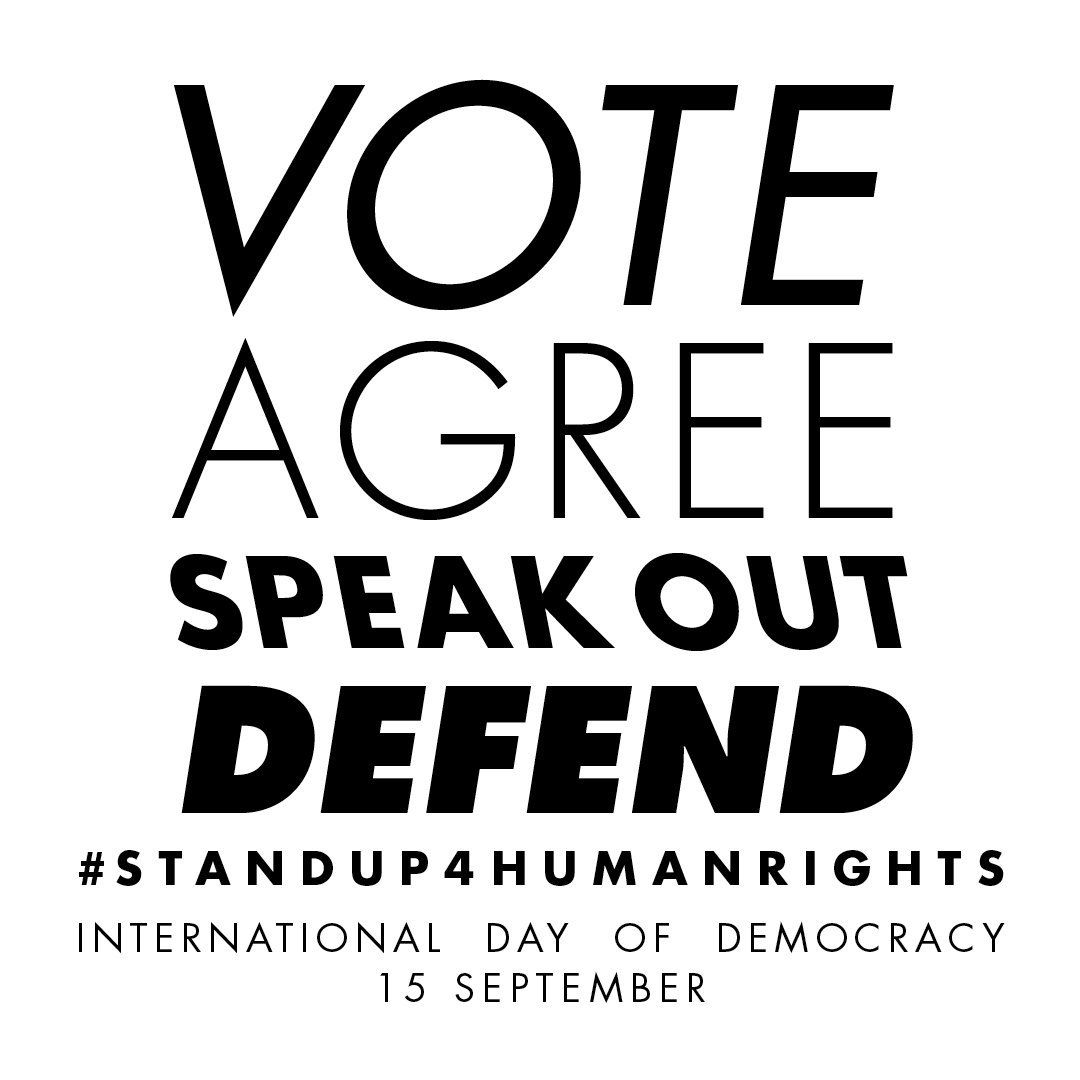Transparent and participative societies based on dialogue, pluralism and tolerance can exist only where State and non-State actors respect the exercise of rights, including freedom of opinion and expression, peaceful assembly and association and participation in public life. The exercise of these freedoms is fundamental to fostering dialogue, upholding the rule of law and democracy through participation and creating a safe and enabling environment within which an independent and robust civil society1/ can help build and maintain an effective human rights protection system. In many countries, independent State mechanisms have been established to promote and protect human rights as a key element of this participative system. Human rights education is also central to nurturing democratic spaces and contributing to an enabling environment through preventative strategies. In States in transition, where democratic space is nascent or limited, the protection of these freedoms is a test of political will and capacity for change.She has something to say! A student raises her hand at a public school in Taliko Neighbourhood, Bamako. Education and human rights education is central to nurturing democratic spaces and contributing to an enabling environment. © UN Photo/Marco DorminoShe has something to say! A student raises her hand at a public school in Taliko Neighbourhood, Bamako. Education and human rights education is central to nurturing democratic spaces and contributing to an enabling environment. © UN Photo/Marco DorminoIn recent years, political changes resulting from popular protests in several countries, particularly in the Middle East and North Africa, have led to the opening of democratic spaces, including through an unprecedented use of social media as a mobilizing tool. However, those spaces are often disputed and in some cases, public freedoms are threatened by both State and non-State actors, with increasingly polarized economic, political, social and religious dynamics. These developments undermine meaningful transitions that should be anchored to the rule of law and fundamentally, the enjoyment of human rights, peace, stability and social justice.Trends to restrict public liberties and curtail the role of civil society actors have been identified around the world, particularly in the context of electoral processes or in reaction to protests against austerity measures, corruption and social injustice. Moreover, in a number of countries, governments continue to use security policies, including counter-terrorism strategies, as a pretext to restrict public freedoms and the role of civil society.In such contexts, human rights defenders, such as media workers and activists, are often the primary targets of threats and attacks by authorities and increasingly, by non-State actors, including those linked to the private sector. Women defenders are targeted when they are perceived to challenge socio-cultural norms, traditions, perceptions and stereotypes related to the role and status of women in society. In all regions, incitement to hatred2/ and discrimination, stigmatizing opponents or specific groups, are more evident in political speeches and are being trivialized and amplified through the media and use of communication technologies.Rather than engaging in dialogue to address the root concerns of protestors, some governments are adopting measures to restrict public freedoms and resorting to violent repression of any forms of protest or criticism. The power and role of the military is frequently used and abused to curtail democratic spaces. These practices are likely to continue.In other countries, the increased trend towards combining politics and religion and/or traditional values has led to restrictions on public freedoms, exacerbating intolerance, incitement to hatred and violence, and thereby endangering pluralism and dialogue. In those contexts, women are often exposed to multiple forms of discrimination and targeting.Equality March, LGBTI pride festival in Moldova, 2013. © OHCHR Photo/Claude CahnEquality March, LGBTI pride festival in Moldova, 2013. © OHCHR Photo/Claude CahnNew technologies offer a variety of opportunities for media workers, activists and institutions to expand democratic spaces. But, they also carry with them additional human rights challenges. Measures to control these technologies, and those who use them, are rapidly developing, including measures of mass surveillance, leading to concerns for the right to privacy and the need to protect individuals who reveal human rights violations, such as whistle-blowers.Although if the number of national human rights institutions (NHRIs) has grown from a mere handful 20 years ago to more than 100, the lack of independence prevents some of them from effectively fulfilling their mandates. NHRIs must be independent, equipped with sufficient resources and the competence to promote and protect the full spectrum of rights, in accordance with the Paris Principles. Victims of human rights violations often face serious financial and other difficulties in seeking access to justice. NHRIs, which in principle are much easier to access, can play an important role in receiving and considering individual complaints related to human rights violations.Despite the creation of more mechanisms and mandates to protect civil society actors, in recent years they have been subjected to acts of intimidation and reprisals as a consequence of their cooperation with the UN, its representatives and its mechanisms in the field of human rights. As the Secretary-General stated in his report on peacebuilding in the aftermath of conflict,“[r]eprisals and intimidation against individuals cooperating with the United Nations are unacceptable [..] We must take action at every level to strengthen the voices of democracy.”OHCHR expected contribution
